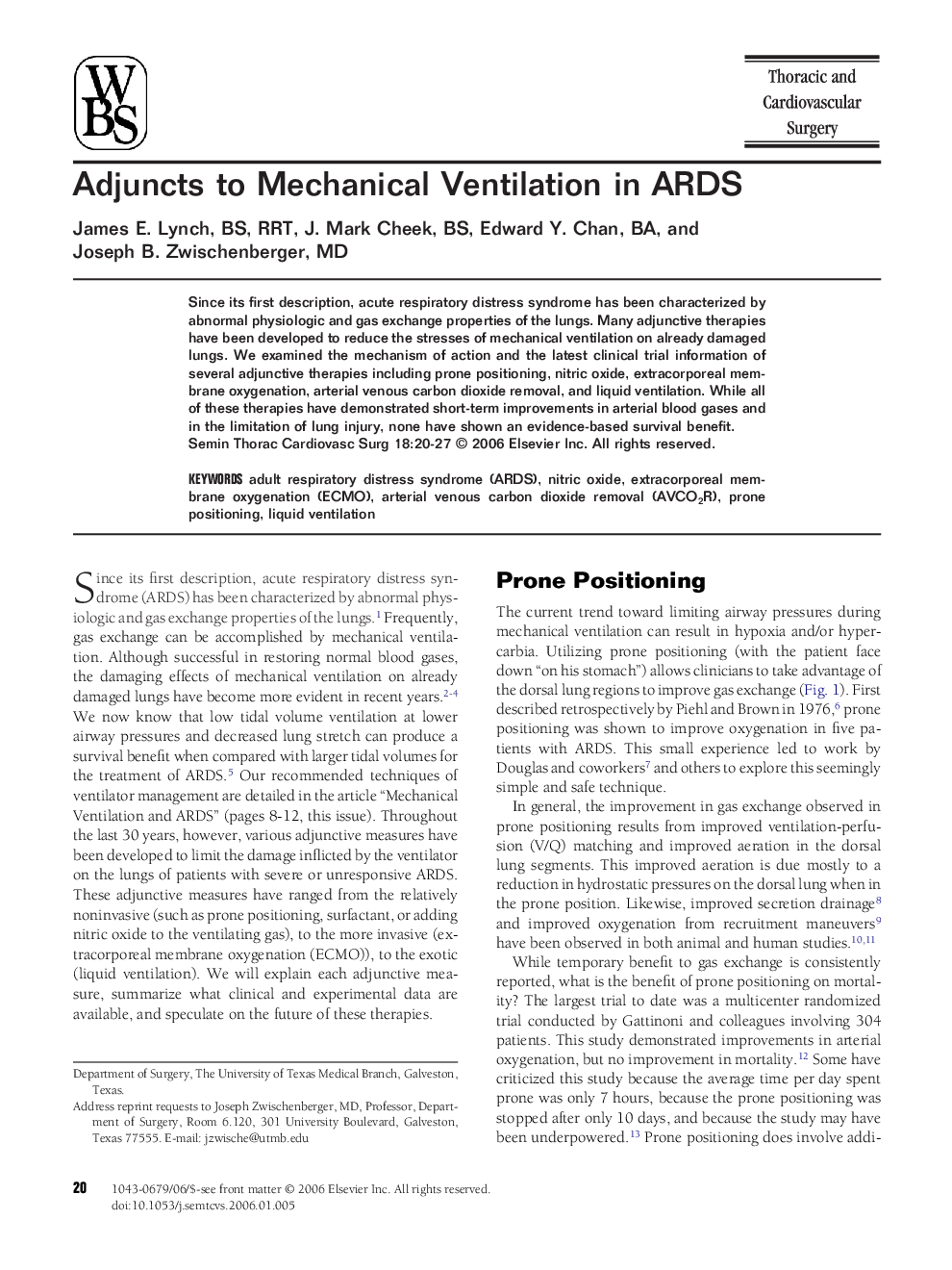| Article ID | Journal | Published Year | Pages | File Type |
|---|---|---|---|---|
| 3025753 | Seminars in Thoracic and Cardiovascular Surgery | 2006 | 8 Pages |
Abstract
Since its first description, acute respiratory distress syndrome has been characterized by abnormal physiologic and gas exchange properties of the lungs. Many adjunctive therapies have been developed to reduce the stresses of mechanical ventilation on already damaged lungs. We examined the mechanism of action and the latest clinical trial information of several adjunctive therapies including prone positioning, nitric oxide, extracorporeal membrane oxygenation, arterial venous carbon dioxide removal, and liquid ventilation. While all of these therapies have demonstrated short-term improvements in arterial blood gases and in the limitation of lung injury, none have shown an evidence-based survival benefit.
Keywords
Related Topics
Health Sciences
Medicine and Dentistry
Cardiology and Cardiovascular Medicine
Authors
James E. Lynch, J. Mark Cheek, Edward Y. Chan, Joseph B. Zwischenberger,
